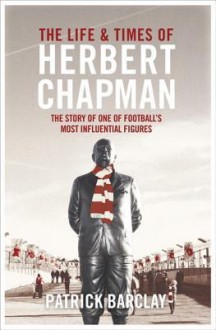Herbert Chapman, the boss of the all-conquering Arsenal side of the 1930s, was the father of all soccer managers, arguably the greatest of all time, and certainly the most imaginative. Many of the game's furniture, including floodlights and numbered shirts, were designed by him—even the tradition...
show more
Herbert Chapman, the boss of the all-conquering Arsenal side of the 1930s, was the father of all soccer managers, arguably the greatest of all time, and certainly the most imaginative. Many of the game's furniture, including floodlights and numbered shirts, were designed by him—even the tradition of a manager leading his team out at the FA Cup Final at Wembley—as were tactics that survive to this day and which can be detected in the great Barcelona team that has dominated European competition in recent years, three quarters of a century after his premature death in 1934. Working mostly for clubs in the north of England, including playing for Worksop, Northampton, Sheffield United, and Notts County, he retired from playing at the age of 29 to become a manager at Northampton. He moved to Leeds in 1912, then left to work in a munitions factory for the duration of the war, leaving under a cloud of scandal, later proved innocent. He managed Huddersfield for a time, where he built a team that was to win three English championship titles in succession. He then left for Arsenal and won three in four years. He died before the third title arrived at Highbury, but no one doubted to whom the credit was due. This book weaves Chapman's life into the times through which he lived, combining the narrative with both soccer playing and social history of the inter-war years, the dramatic era of the general strike, and the Depression of the 1930s. Among those who will testify to his soccer legacy are his successors at Arsenal: George Graham, who made a close study of his life, and Arsene Wenger, who knew of Chapman's special place in the pantheon even before taking over at Highbury.
show less

